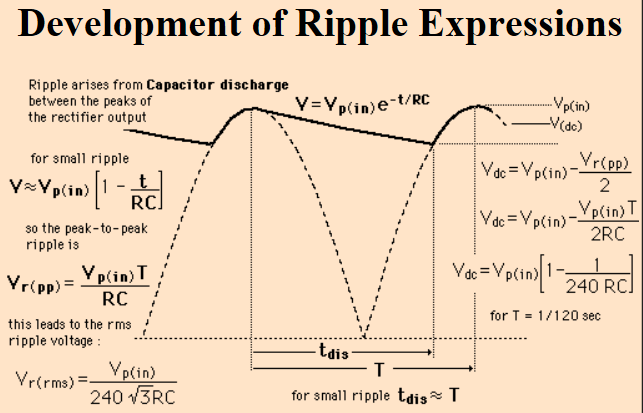The OP's original post has formulae reversed. The ripple for half-wave rectification is larger than that for full wave.
Easy to think about: if you charge a cap with a half a wave of voltage and current, it will discharge less if you have another charging half wave right after the first, and more if you have to discharge the cap another half wave with no input.
Ripple with full wave rectification is \$I / (2 f C)\$, and with half wave is \$I / (f C)\$.
Probably poor practice to use the \$R\$ from the filter in the equation: what matters is load current which will reflect both filter AND load resistance.


